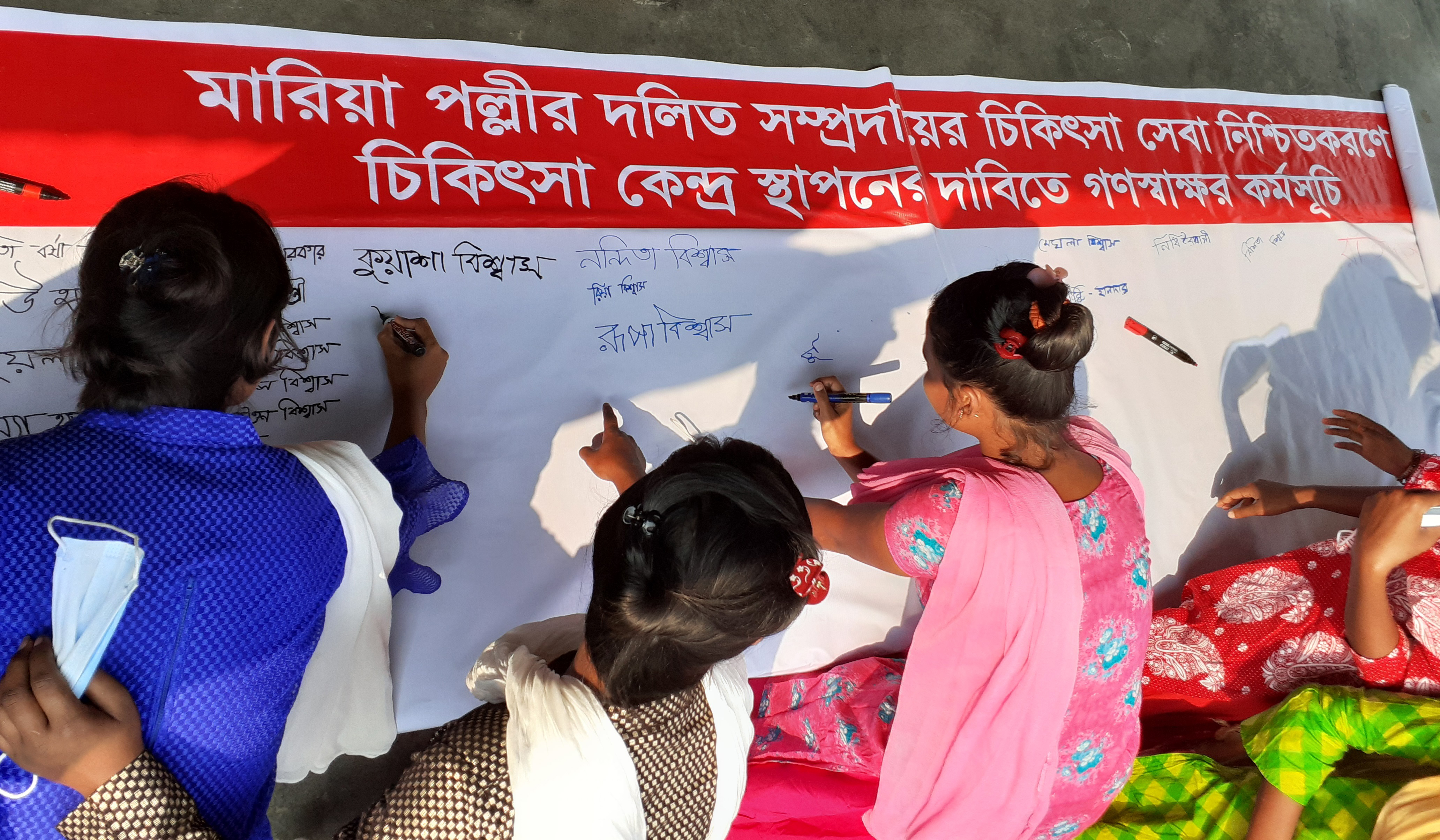This is the story of a community named Maria Polly situated in Bagerhat, a southern district of Bangladesh. This Polly is the home of 114 families, most of the people in this community are marginalized such as barber, cobbler, bamboo-cane artisans etc. This Polly situated in the periphery of Bagerhat Municipality and Karapa Union. These excluded people were denied receiving public service since the most the public service institutions had been remained reluctant to bring them under the public service net.

As most of the people in this community live under the poverty line and the COVID-19 pandemic intensified their situation particularly in the areas of livelihood and receiving health services.
Considering the context, a group of young people named ‘Ronger Mela’-- consisting of twenty-five young women--was raising their voices against the injustices and the exclusion.
There was no community clinic at Maria Polly and the nearest public health institute, Sadar Hospital, is 5 kilometer away. The members from Ronger Mela Youth Group received trainings from ActionAid Bangladesh on accountability, gender responsive public services and budget monitoring to make them empowered to claim their rights.
Therefore, according to their plan, they designed a signature campaign demanding for setting up a community clinic at their locality and organised quite a few mobilizations demanding their rights.
Responding to the demand of the Maria Polly community, the Upazila Health and Family Planning Officer assigned a SACMO (Sub assistant community health officer) to visit the community every Saturday from 10am to 1pm to provide free health services.
From December 2020, the SACMO is regularly visiting the community and giving health service to 40/50 people every Saturday.
Ranger Mela Youth Group do not limit their activity with just one issue. During the seasonal cyclones/floods or during the pandemic, they do humanitarian responses (support to provide aid, raise awareness etc.). They also engage in different activities such as building adolescent health awareness, support marginalized people getting Social Safety Net services such as allowances for old people, widow allowance etc.